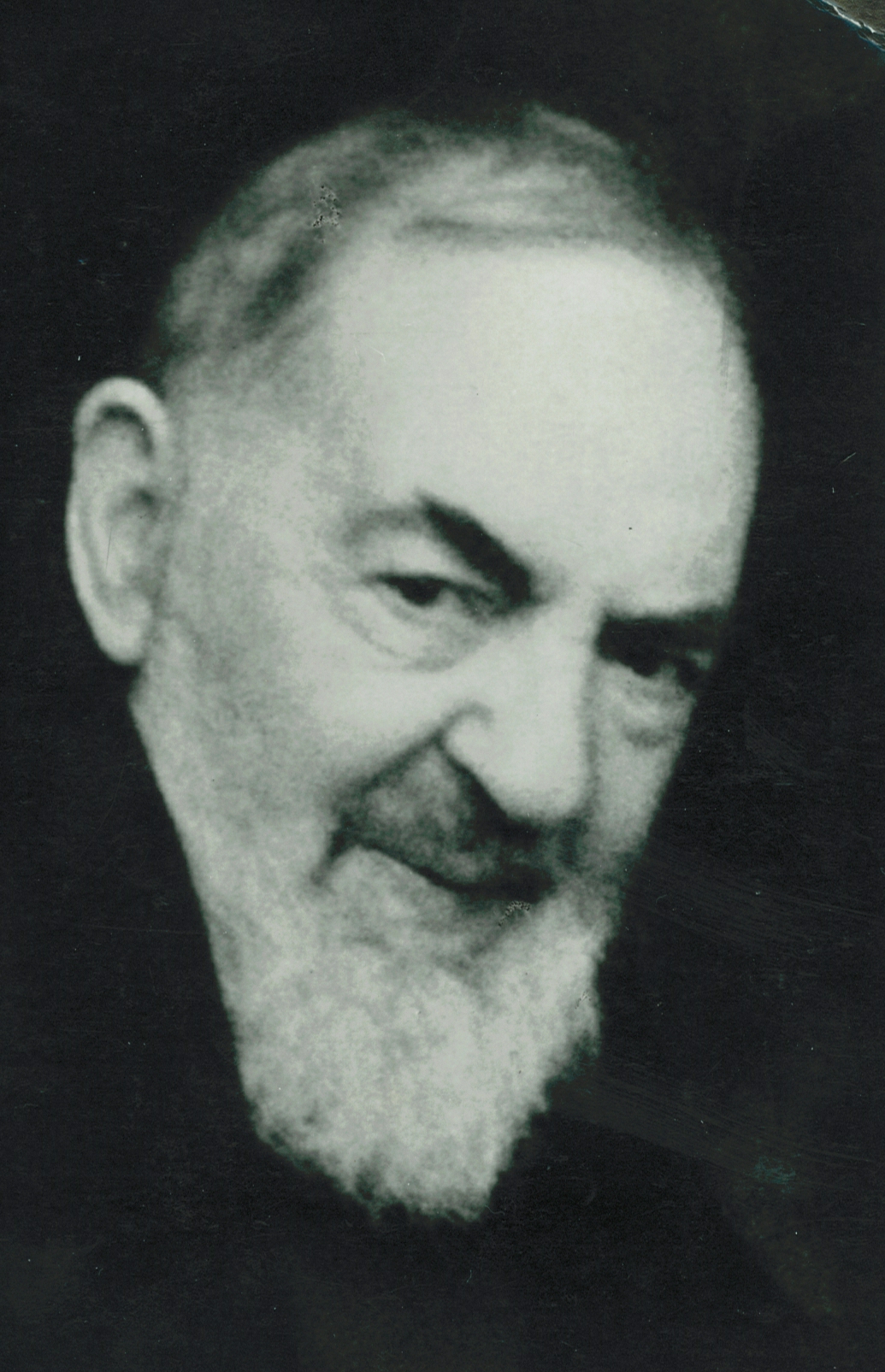Podcast: Play in new window | Download (Duration: 1:57 — 2.7MB) | Embed
Subscribe: Apple Podcasts | Spotify | Amazon Music | Android | Pandora | iHeartRadio | JioSaavn | Podchaser | Gaana | Podcast Index | Email | TuneIn | Deezer | Anghami | RSS | More
Day 6
St. Padre Pio you have said: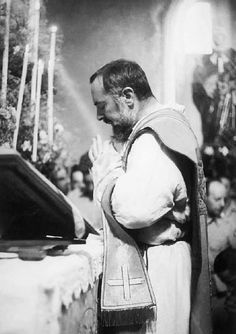
In the most Holy Sacrament of the Eucharist, in this sacrament of Love, we have true life, a blessed life, and true sacrament of Love; we have true life, a blessed life, and true happiness. Because in it we receive not only those graces that perfect us but the very Author of those graces.
Gracious God, you generously blessed your servant, Padre Pio, with the gifts of the Spirit. You marked his body with the five wounds of Christ Crucified, as a powerful witness to the saving Passion and Death of your Son, and as a stirring inspiration to many people of your infinite mercy, forgiveness and love.
In the confessional, Padre Pio labored endlessly for the salvation of souls. Through his powerful intercession, many who suffered were healed of sickness and disease. Endowed with the gift of discernment, he could read people’s hearts. With dignity and intense devotion, he celebrated daily Mass, inviting countless men and women to a greater union with Jesus Christ, in the Sacrament of the Holy Eucharist.
Through the intercession of Saint Pio, we confidently beseech you to to grant us the grace of (state your petition here). Help us to imitate his example of prayerful holiness and compassion, so that we, too, may faithfully follow the Risen Lord, and one day rejoice in the Kingdom, where you live and reign forever and ever. Amen.

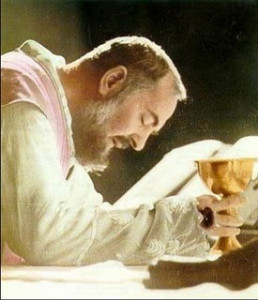
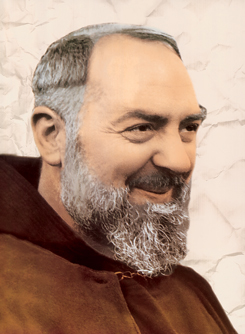
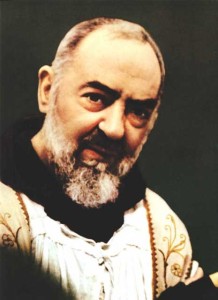
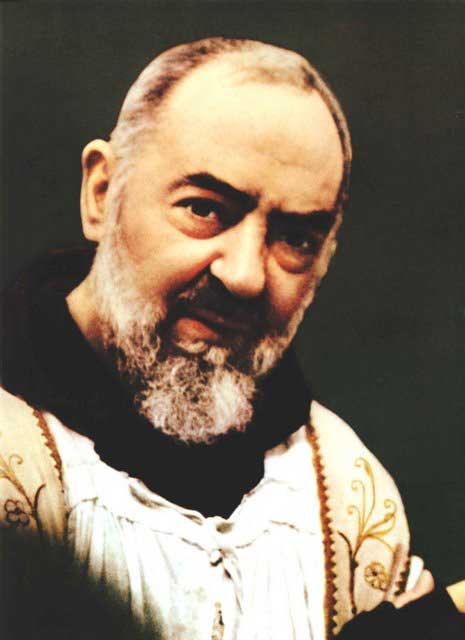
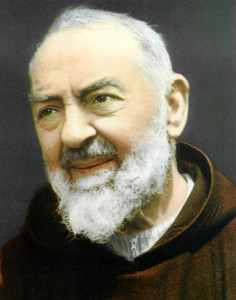 From the writings of St. Pio:
From the writings of St. Pio: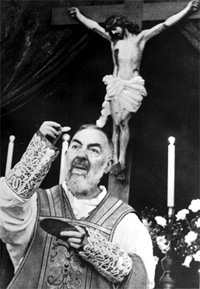
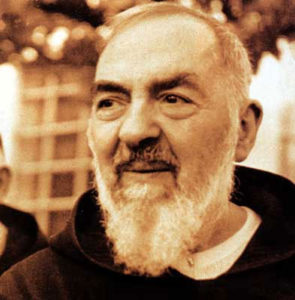
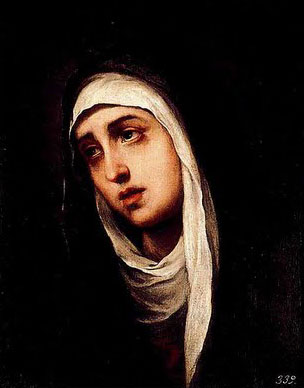 The Virgin Mary, who believed in the word of the Lord, did not lose her faith in God when she saw her Son rejected, abused and crucified. Rather she remained beside Jesus, suffering and praying, until the end. And she saw the radiant dawn of His Resurrection. Let us learn from her to witness to our faith with a life of humble service, ready to personally pay the price of staying faithful to the Gospel of love and truth, certain that nothing that we do will be lost.
The Virgin Mary, who believed in the word of the Lord, did not lose her faith in God when she saw her Son rejected, abused and crucified. Rather she remained beside Jesus, suffering and praying, until the end. And she saw the radiant dawn of His Resurrection. Let us learn from her to witness to our faith with a life of humble service, ready to personally pay the price of staying faithful to the Gospel of love and truth, certain that nothing that we do will be lost.